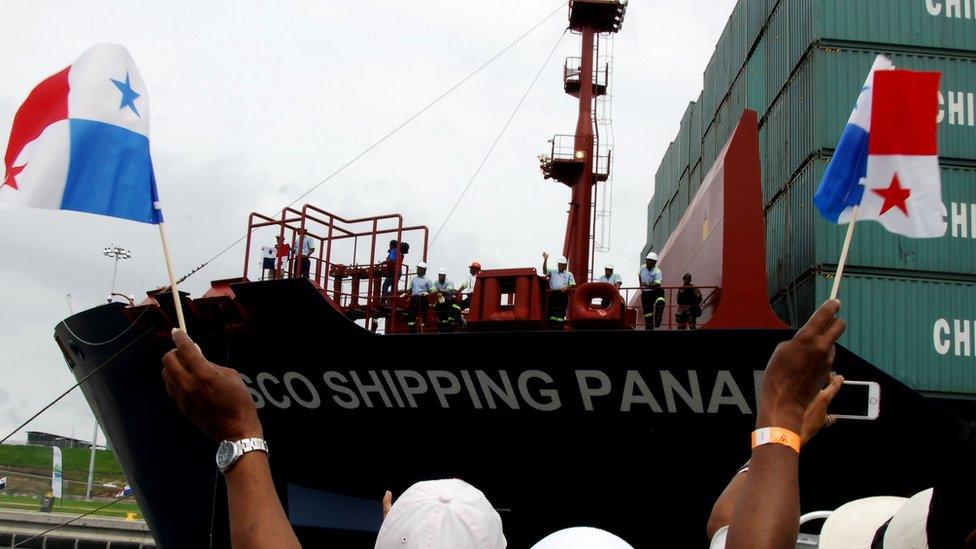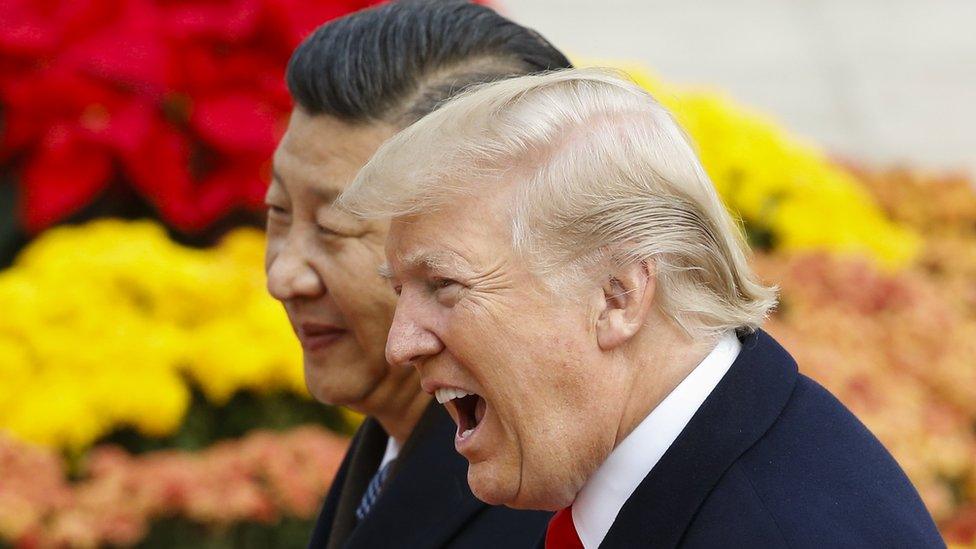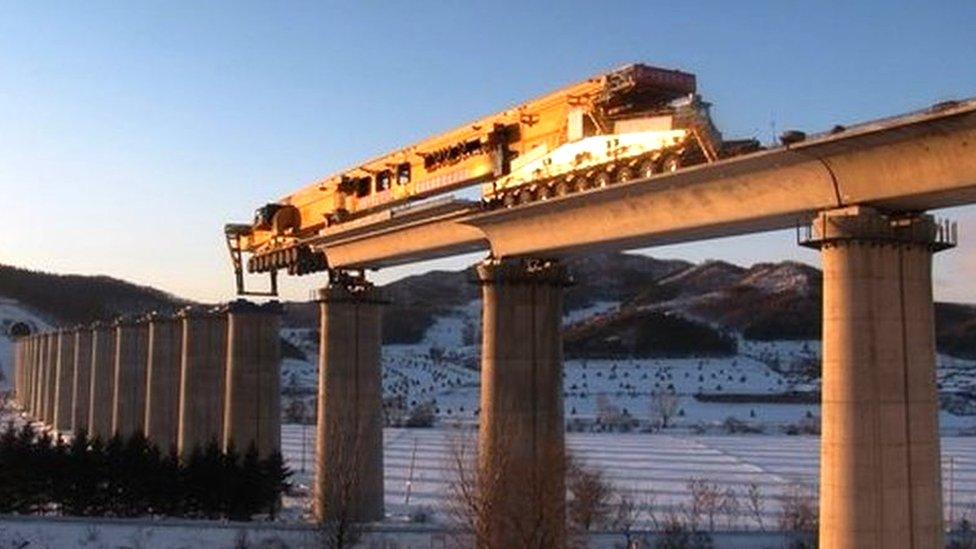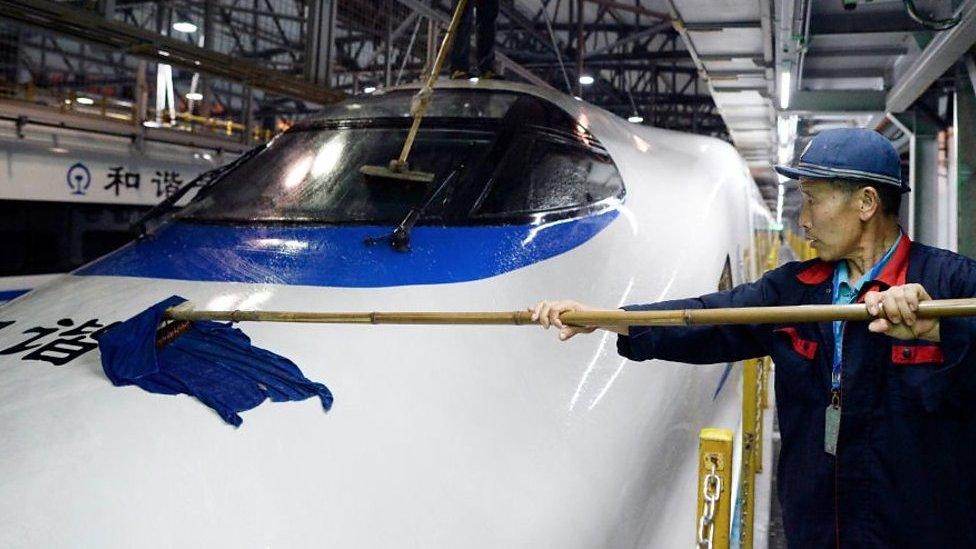Trapped in the middle of the US-China 'Cold War'
- Published

Picking sides is never fun. Especially if you're the one stuck in the middle of two giants.
Panama is one of many countries where the rivalry between the US and China is playing out in real time.
It was caught in the crossfire last week when US Secretary of State Mike Pompeo, whilst visiting Panama, criticised Chinese economic activity in the country.
He called the actions of China "predatory", external and said that Chinese state-owned enterprises show up in a way "that is clearly not transparent, not market driven and is designed not to benefit the people of Panama, but rather to benefit the Chinese government".
China lashed out, as you would expect. But in the first public comments from Panama after Mr Pompeo's remarks, Vice-President Isabel de Saint Malo de Alvarado said that while Panama welcomes foreign direct investment from both the US and other countries, including China, it would be "careful" when letting new companies in and choosing new contractors.
This was not overt criticism of Beijing, but rather a more nuanced evaluation of doing business with China that increasingly other countries are also beginning to voice.
What this shows is that the US's increased hostility towards China on the international stage is having an effect on countries caught in the middle.
Panama has always been hugely important to the US - both its location and role in global trade make its success "vital" to US prosperity and national security, as the US State Department points out, external.
The US is Panama's most important export market, external, and over the last few years China has also been strengthening ties with the Latin American nation.
In 2017, Panama ditched long-standing ties with Taiwan and in return, saw 19 Chinese co-operation deals signed, including a feasibility study towards signing a free trade deal between the two countries.
The recent US hostility towards China's economic rise has meant countries like Panama - so welcoming of Chinese investment in the past - will have to find a new, more delicate way of balancing themselves between the two superpowers.
Take Ms de Alvarado's comments on China's Belt and Road initiative for instance. It's revealing just how careful she was in her assessment of the much criticised "debt diplomacy" that has plagued some nations participating in China's massive infrastructure project.
"We are not dependent on companies coming and financing our projects for us," the vice-president said on the BBC's Asia Business Report programme.
"[But] countries that are vulnerable because their economies are weak, because they do not have a sound system to ensure that steps are taken considering their own interests, would be in a different situation."
This sort of nuanced positioning is becoming increasingly more common for countries that find themselves locked between the US and China, as they try and navigate this new landscape.
For example, officials from some South East Asian countries - while loathe to criticise China publicly - have told me privately that the Trump administration's new stance on Beijing has emboldened them to speak out.
And make no mistake. This is not just a battle over trade as I said earlier this week.
Increasingly, the world's two superpowers are fighting each other on new ground.
- Published18 September 2018

- Published20 July 2018

- Published12 May 2017
